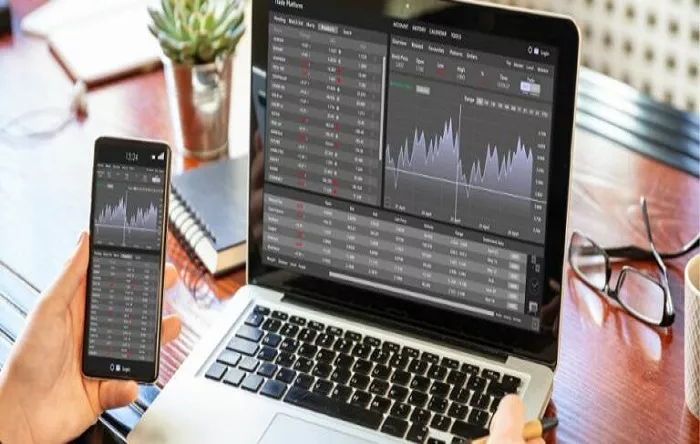Warren Buffett, the renowned investment manager, has long been celebrated for his remarkable track record. His success, spanning decades, has made him one of the most respected figures in the world of investing. Since taking the helm at Berkshire Hathaway (NYSE: BRK.A, BRK.B) in 1965, Buffett has consistently delivered a compound annual return of 20% over the past 59 years. His ability to generate substantial wealth for shareholders is widely acknowledged, making him a model for investors worldwide.
However, despite Berkshire Hathaway’s impressive 25.5% gain in 2024, which outpaced the S&P 500, Buffett’s stock moves in the past year have raised eyebrows. In particular, Buffett oversaw the sale of more than $134 billion worth of equities in 2024, a sum that doesn’t include the final fourth-quarter tally. In contrast, his purchases during the first nine months of the year amounted to just $5.8 billion. This stark disparity has prompted some analysts to question whether Buffett believes the market is overpriced.
Buffett’s Recent Investment Strategy
Buffett’s sizable stock sales in 2024 have led many to speculate that he considers stocks too expensive. However, the significant sales are part of a broader strategy, reflecting Buffett’s ongoing search for value in specific sectors. While his stock sales dominate the headlines, Buffett’s recent purchases highlight his focus on companies that offer compelling growth potential, especially smaller companies.
Between December 17 and January 3, Berkshire Hathaway made several noteworthy investments. These purchases were disclosed to the Securities and Exchange Commission (SEC) due to Berkshire’s status as a greater-than-10% shareholder. Here’s a breakdown of the notable purchases:
- 8.9 million shares of Occidental Petroleum: $409 million
- 5 million shares of Sirius XM: $107 million
- 474,000 shares of Verisign: $94 million
Berkshire Hathaway’s position in Occidental Petroleum includes preferred shares with warrants to purchase common stock at $59.62 per share. Despite this, it was somewhat surprising that Buffett’s team didn’t buy more shares of Occidental at prices below that threshold. Meanwhile, the purchases of Sirius XM and Verisign illustrate Buffett’s focus on smaller, less-established companies, which could still offer great value.
Sirius XM, with a market capitalization of $7.5 billion, and Verisign, valued at just over $20 billion, represent a shift in Buffett’s strategy. These companies aren’t industry giants, which may explain why Berkshire only acquired $200 million worth of stock in these firms. Buffett’s interest in such companies highlights his ongoing search for undervalued assets, despite the challenges posed by larger, more heavily scrutinized companies.
Interestingly, during the period of Berkshire’s stock purchases, Verisign’s share price increased by 5.3%, while the S&P 500 fell by 2.2%. This suggests that Berkshire’s buying activity may have provided upward momentum for the stock, alongside increased investor interest spurred by the disclosure.
The Challenge of Large-Cap Stocks
Buffett’s strategy of focusing on smaller companies signals a broader challenge facing him and Berkshire Hathaway. While the company has the ability to liquidate sizable positions in large-cap stocks—such as the $75 billion worth of Apple stock it sold in Q2 of last year—finding a suitable reinvestment opportunity for such large sums is a daunting task.
Buffett has acknowledged this challenge, noting in his annual letter to shareholders that only a handful of companies remain capable of significantly moving the needle for Berkshire. Many of these companies have already been extensively analyzed and picked over by investors, making it difficult to find attractive, undervalued opportunities.
For instance, the “Magnificent Seven” largest companies by market capitalization—such as Apple, Microsoft, and Alphabet—currently trade at high price-to-earnings (P/E) ratios, with a combined forward P/E ratio of 29.8. This has led Buffett to caution against investing in these companies at their current valuations. Even Berkshire Hathaway itself has seen its stock price rise to a point where Buffett stopped buying back shares in Q3 of 2024, signaling that he believes his own company’s stock is overpriced.
Smaller Companies Present Attractive Valuations
Despite the challenges posed by large-cap stocks, Buffett continues to find value in smaller companies. For example, Sirius XM trades at just 7.4 times analysts’ consensus earnings estimate for 2025, while Verisign and Domino’s trade at around 24 times forward earnings. Many smaller companies are even more attractively valued, with the S&P 400 mid-cap index currently trading at a forward P/E of 16.3, and the small-cap S&P 600 trading at 15.8 times forward earnings.
The difficulty for Berkshire Hathaway, however, is that its large size limits how much stock it can purchase in smaller companies without driving up the price. For individual investors, this presents an opportunity to buy stocks in these undervalued companies without significantly impacting the market price.
Conclusion: A Cautious but Strategic Approach
Warren Buffett’s stock decisions in 2024 offer valuable insights into his investment philosophy. While his massive sales of equities may signal caution about the broader market’s valuation, his continued interest in smaller, undervalued companies demonstrates his commitment to finding opportunities for long-term growth. For investors, this strategy highlights the importance of being patient and discerning, especially when dealing with larger companies that may no longer offer attractive valuations. By focusing on smaller firms with strong potential, Buffett and Berkshire Hathaway are positioning themselves for future success—while navigating the challenges posed by an increasingly expensive stock market.
Related topics:
EUR/GBP Surges Towards 0.8300 Amid Disappointing UK Data
OPEC Cuts Oil Demand Forecast Again, Commerzbank Analyzes Outlook
Crude Oil Lingering Around $70.00 as Traders Weigh Future Direction


